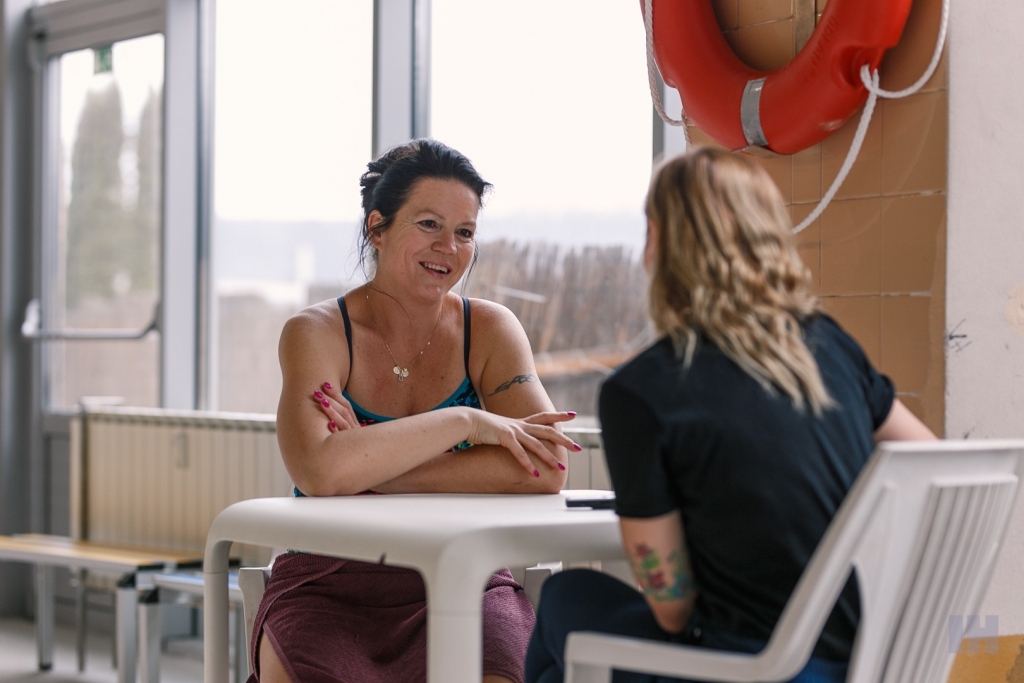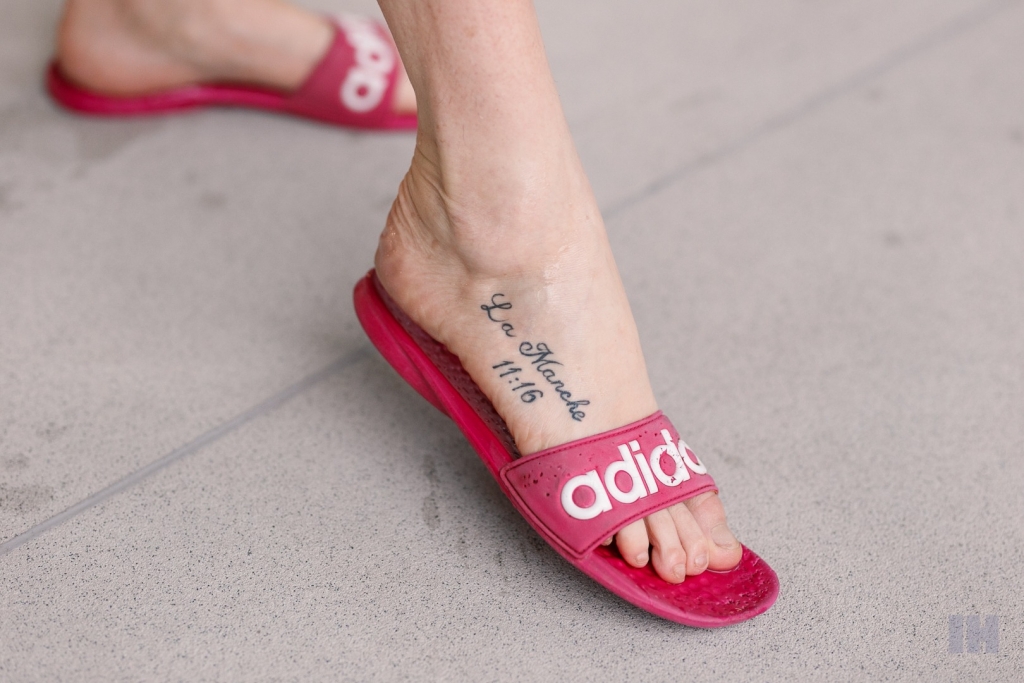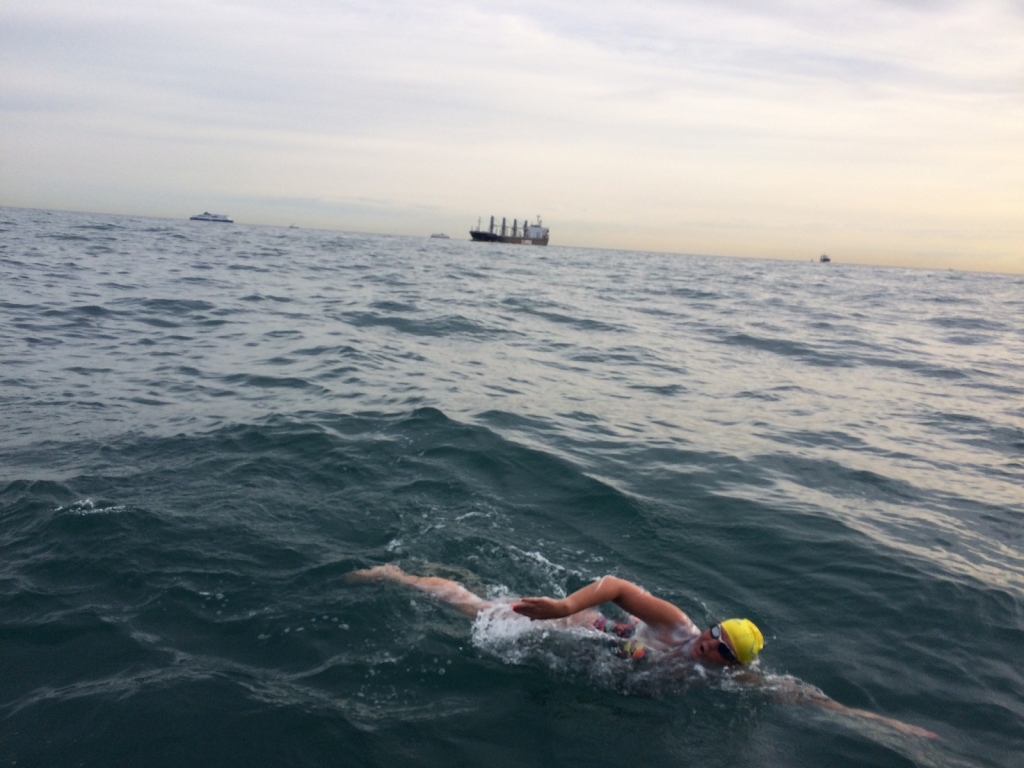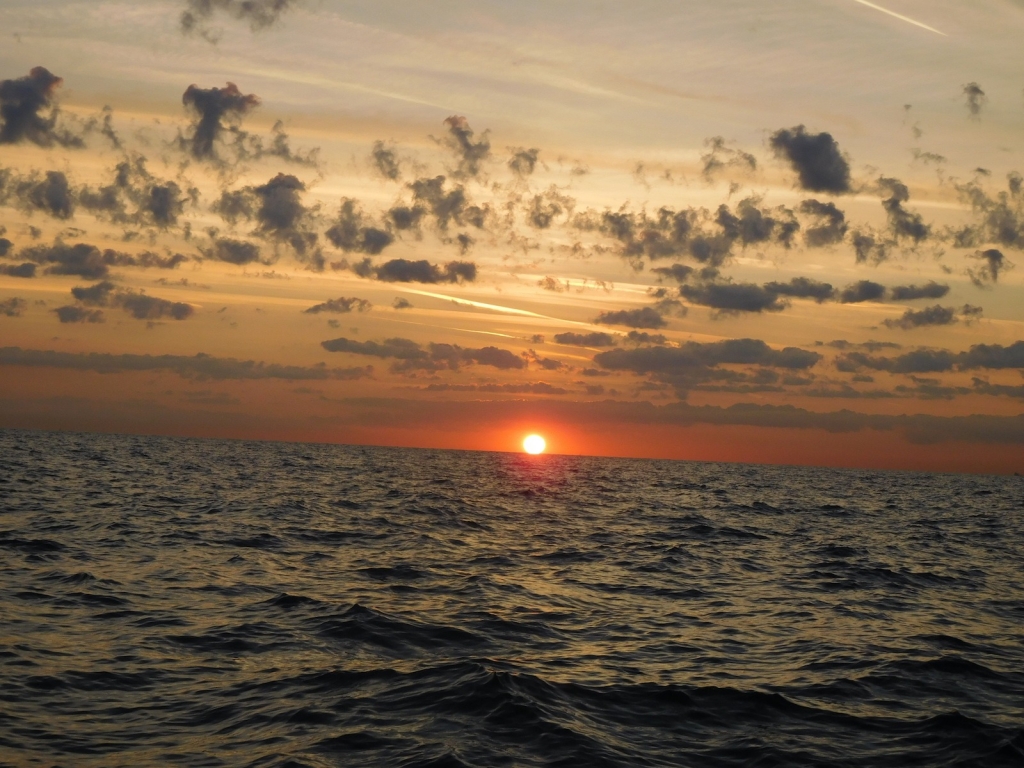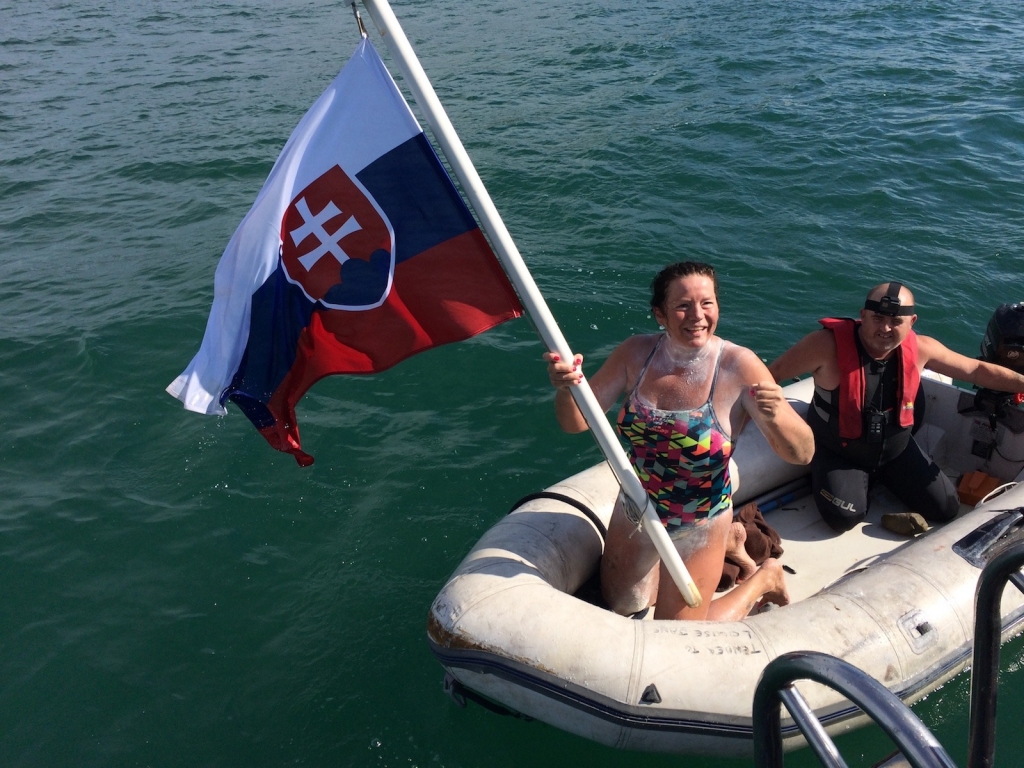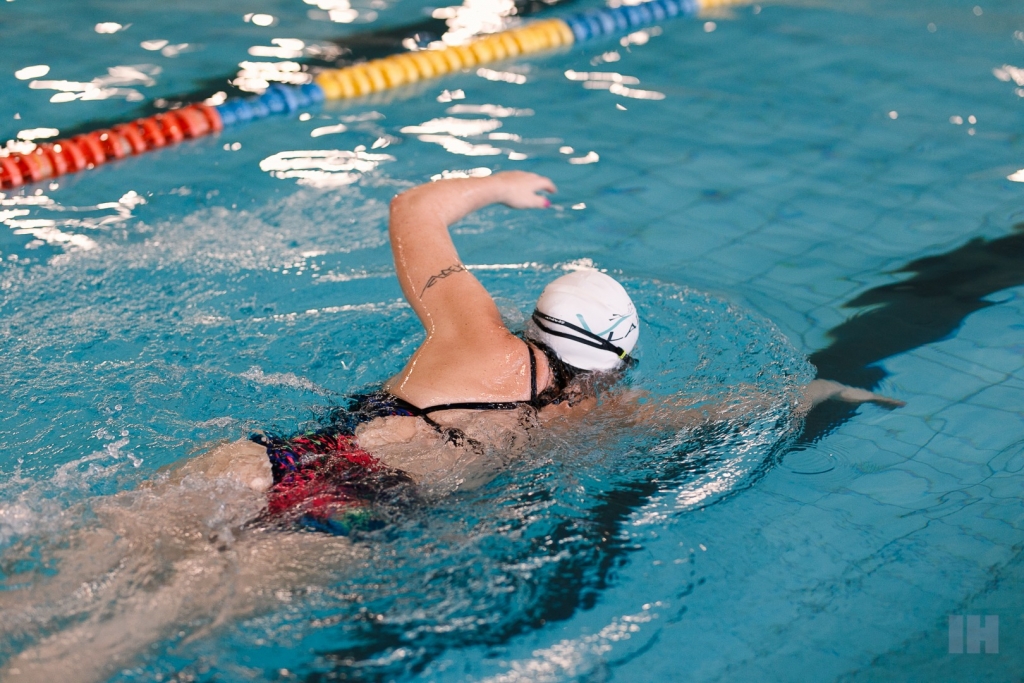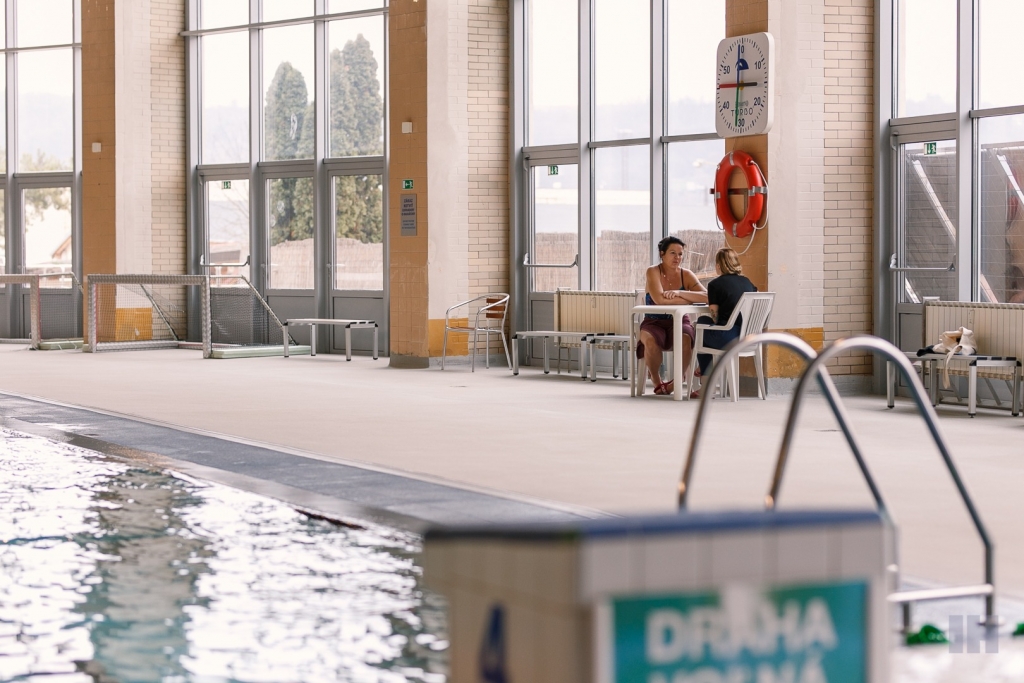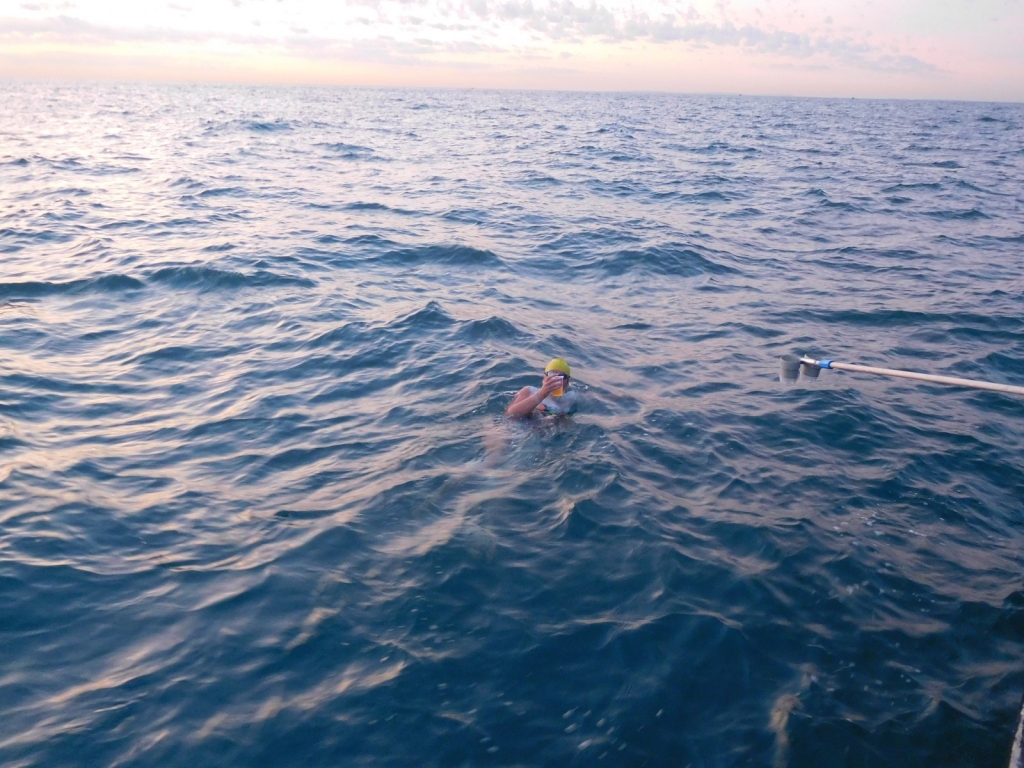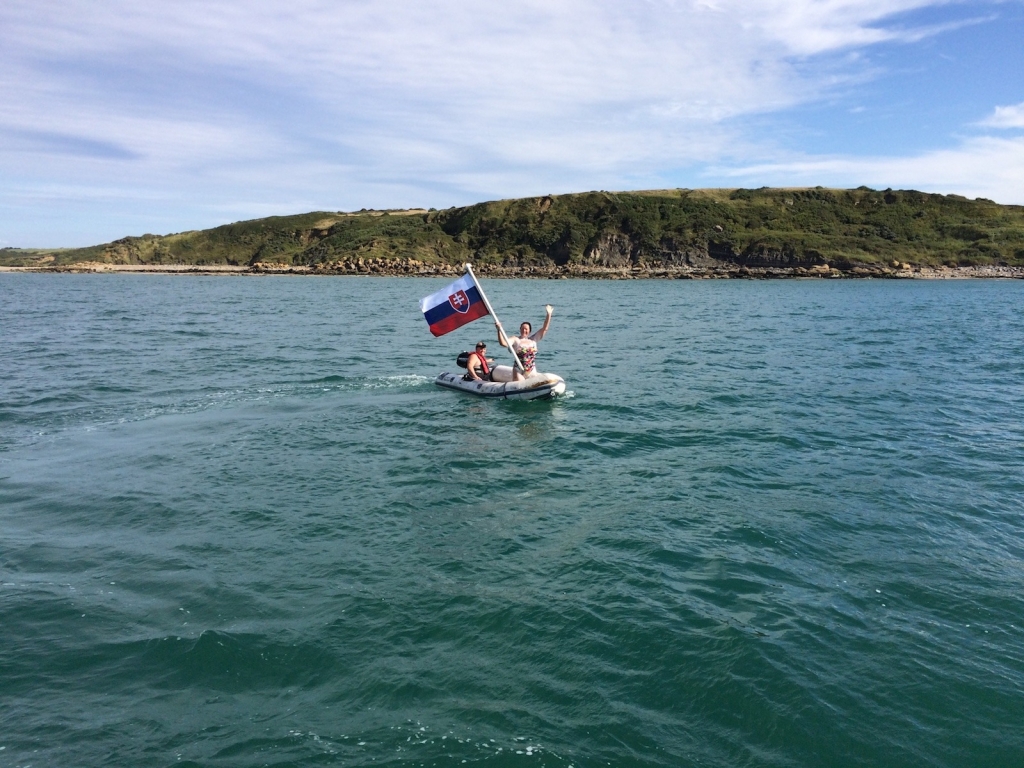Afraid of ocean water and fish, Zuzana Jusková is the fastest & only Slovak female to swim through La Manche
When she was a child, her father enrolled her in a swimming class and she hated since the very beginning – sometimes she had to dive into pool twelve times a week. Hard training and first medals led her to the biggest challenge for long-distance swimmers in the world – swimming across the English Channel which is 45 kilometres long. In the history of Slovakia, only five men have tried to accomplish it. Zuzana Jusková became the first Slovak woman to beat all of them with a record time of 11 hours and 16 minutes. And after twenty years outside the pool.
Thirty years of dreaming
As a child, she had too much energy, so Zuzana’s father decided to make a swimmer out of her. However, it did not meet with much enthusiasm. She attended swimming classes against her will before and after school, on weekends and sometimes holidays since she was ten years old. At that time, the City Indoor Swimming Pool (known to almost everyone from Košice) was not even standing yet. Her first training place was the pool in the original Kunsthalle near the City Park. Zuzana’s body height and structure naturally helped her to become a long-distance swimmer that excels in styles like a butterfly and crawl. She was only a teenager when she heard a radio show that made her dream of something that actually came true thirty years later: “I was fourteen when I first heard about the English Channel swimming challenge. Years later, my family, my children and the former regime took over my life and I did not go into a pool for twenty years. After the strenuous training I went through, I basically started to detest the swimming in general. Nevertheless, the idea of conquering La Manche has been in my head since puberty. In my forties, I decided to pursue my dream and go for it, despite my irrational fear of open water, fish and marine life. After thirty years, I found out that my former swimming classmate Vlado Mravec had moved to Australia and was training swimmers who successfully swam through the channel. The first lines of his email back then were: You are still into this thing?” laughs Zuzana.
Who will be the first woman?
After thirty years and aversion to swimming, Zuzana Jusková decided to return to what she wanted as a child. Since 1875, when the first English swimmer Matthew Webb swam through the tide in almost twenty-two hours, many people from around the world have attempted to undergo the challenge. The first Slovak to pass La Manche was Zoltán Makai with an amazing result – 11 hours, 22 minutes. None of the following Slovak swimmers was able to conquer this record for another fifteen years and Zoltán wondered who would be the first woman to swim through the channel. Zoltán and Zuzana knew each other from swimming competitions, and when he found out what she was up to, he suggested they work together: “Vlado Mravec was preparing the training sessions for me as he did for others who had already crossed the channel before me. Zoli, on the other hand, gave me first-hand advice of an expert who has experienced crises, storms and downfalls at sea. In order to qualify for an attempt, it is necessary to submit a number of documents for the Channel Swimming Association, including swimming, exercise and health tests. The day before my 40th birthday, I got an envelope I still have at home. It said – you have two and a half years to prepare. Then you’ll go.”
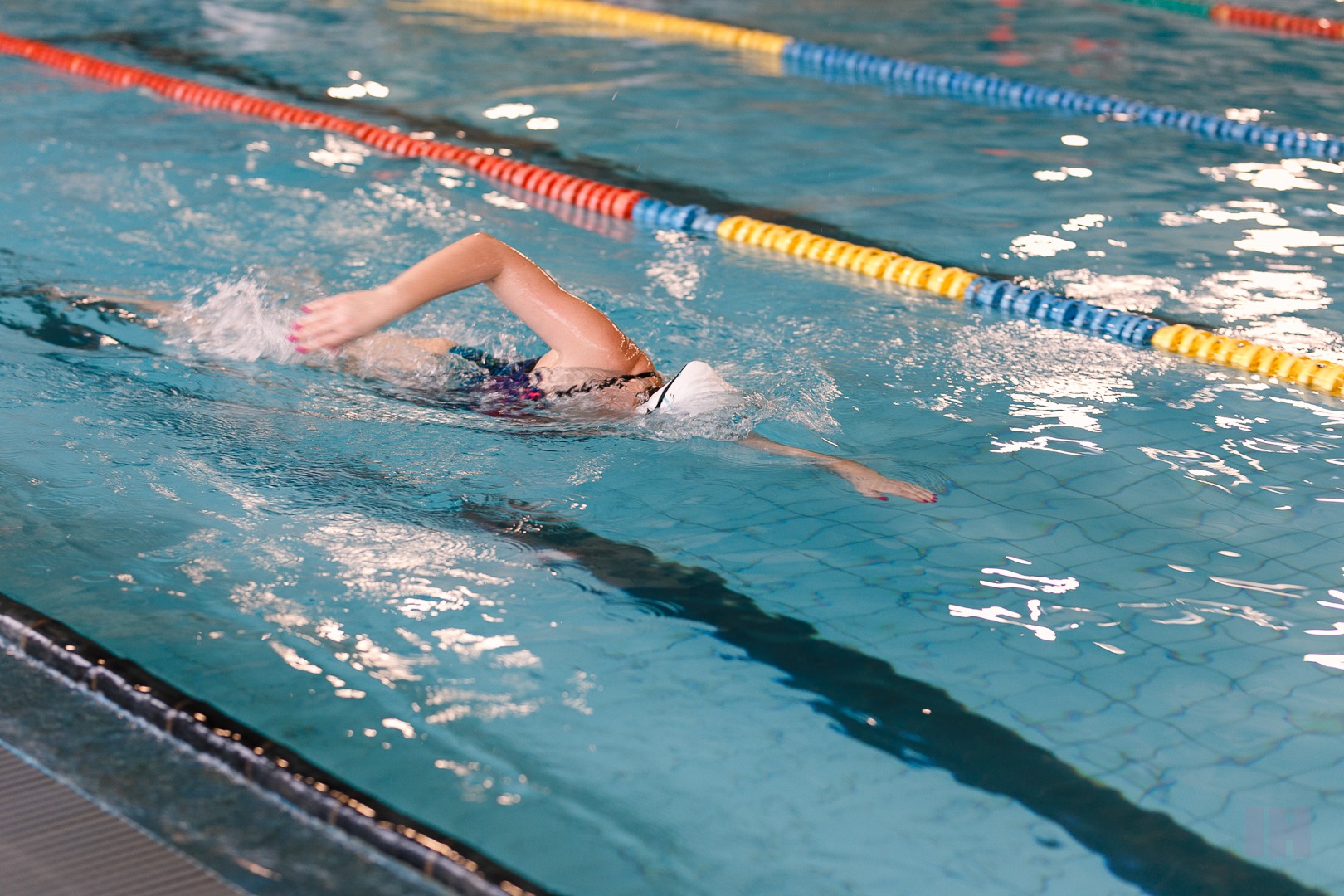
But sharks can eat you there!
More than two years of intensive preparation cost Zuzana a lot of sacrifice and communication with her surroundings and her children. She originally wanted to study pathology, but she ended up in health care and helps cats through a nonprofit organization Heart for Cats. Her training before La Manche consisted of swimming 150-180 kilometres per month, gradual ice-bathing in a water reservoir Bukovec near Košice or in Liptovská Mara. Zuzana trained early in the morning before going to work, late in the evening after leaving it and sometimes even in-between. Worried that her mother would get eaten by sharks, her younger daughter feared the obstacles that came with this challenge. Only a few can imagine all the physiological aspects of long-distance swimming: “It is very difficult for a swimmer to learn to eat while swimming. While eating, you must not touch anyone, not even the ship, which is always a few meters behind you. A mix of biscuits, cola and ionic beverage was served on a stick in a plastic cup to me. After a few hours, the salt completely burned my taste buds on my tongue, palate, lips. I didn’t feel any taste, it was disgusting. Another interesting but often unknown part of long-distance swimming is urination while swimming. For example, a person who swam before me passed away and another’s had his urinating blocked and had to be dragged back to the boat after a few hours. Every half an hour the swimmer must inform those who check on him/her from the boat about this. Another important thing to consider before the challenge is the swimmer’s hourly speed due to the varying English weather. According to the speed, cargo ships can navigate and know where the swimmer will be at a particular time. Water pollution is a serious threat, as I have seen with my own eyes – these ships are everywhere. Moreover, I came across and touched wooden or plastic objects several times during the swim.”
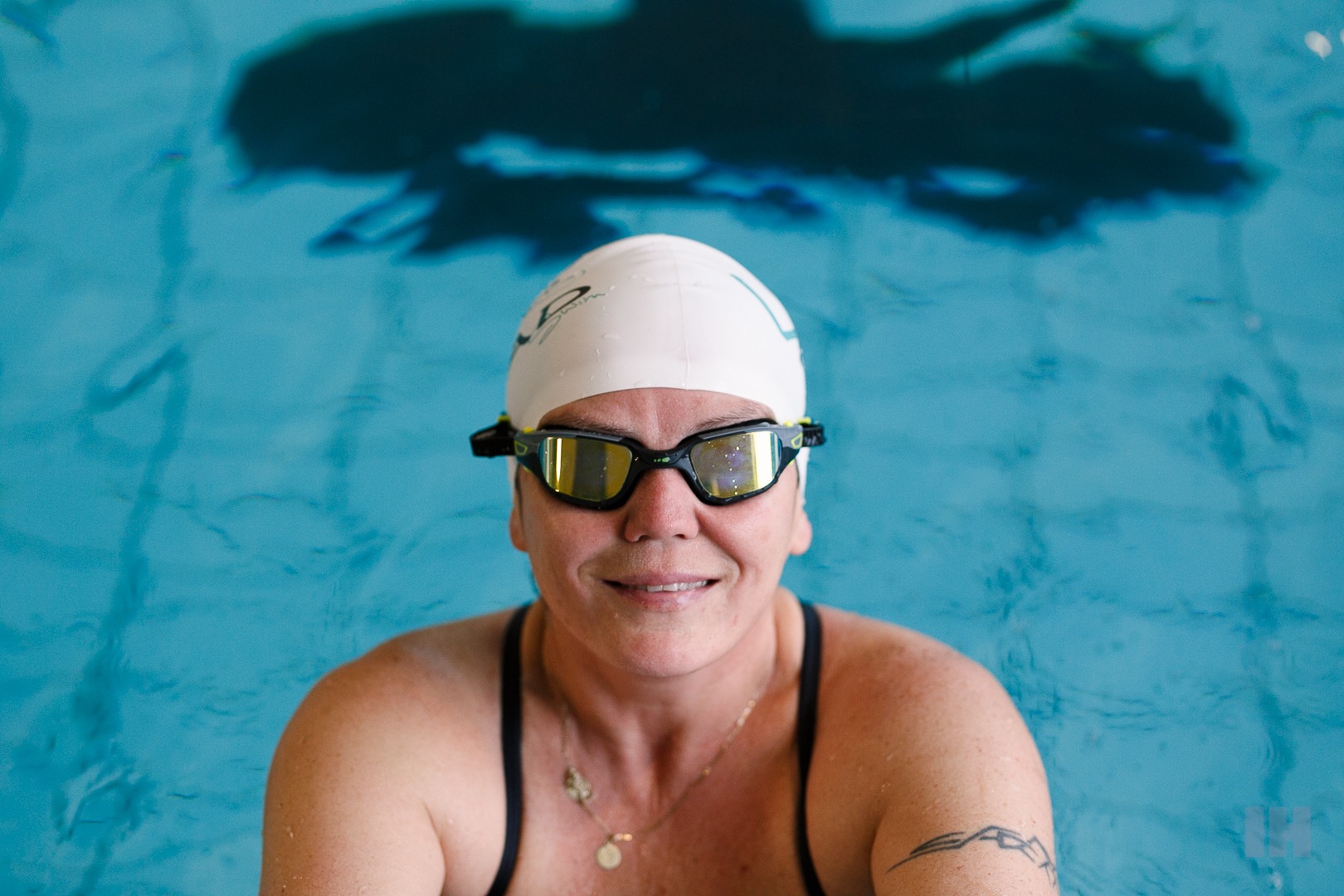
The final narrow strip of the French coast
It is no secret that psychological stamina plays an essential part during a sports performance such as swimming through La Manche. Zuzana is afraid of open ocean water, fish or other sea life. However, they kept her company for the entire time she was in the water, especially at four in the morning as the light of the ship showed her the direction. She says that her fear couldn’t have stopped her, even when was stung by a jellyfish right at the start. Another fact to take into consideration is the current itself – the swimmer may feel that he/she is not moving at all for several hours until the strong current that holds him/her in place until they break through. At such moments, the crew advised Zuzana to swim as if it was for her life and to focus only on her thinking: “We agreed the crew would not let me know how much I had left, or how much time had passed. During my preparation, I swam six and eight hours straight, but not more. I told myself that I had to swim through the channel within fifteen hours. I didn’t turn around. I could see nothing but the ocean and the cargo ships. Hours passed and it took a long time to see the narrow strip of the long-yearned French mainland. And even after that, time stretched until I got close to it. While I was swimming to the shore, I watched people having their meals in the windows of the coastal restaurant.”
I have fulfilled a dream that I had in my head since I was fourteen. Today, there is just a feeling of real satisfaction in my life. I didn’t let anyone or anything stop me from achieving it. Since I swam through La Manche, I feel no malevolence and I’m filled with gratitude. I have great and healthy children and with their help, I was able to stand up against fate, I literally swam against the current. All I have achieved is largely a question of psychological set-up. One can do anything if there is positive thinking.”
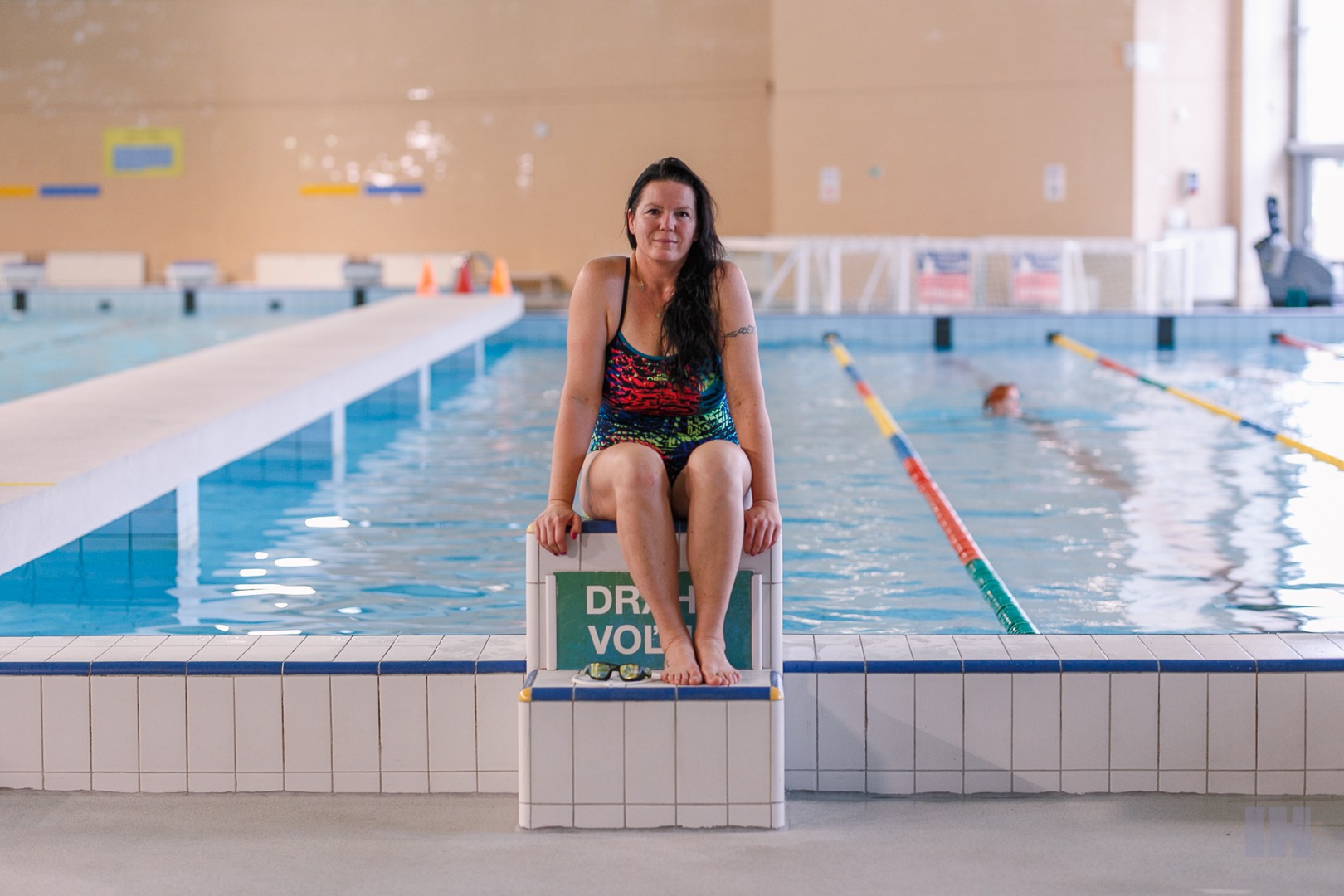
A Slovak record holder is working in health-care
Zuzana describes seeing the shore of the French mainland with one word only – ‘finally’. To successfully finish the La Manche challenge is to get out of the water without help. After more than ten hours of such horizontal exercise, one can barely get back on his feet: “I was really wrong to think I could just stand up after eleven hours in the water. My heavy salt-soaked body fell several times while others could only look at me and they could not touch me. I kept falling to the left, right, like after dancing the whole night. When my fingers dug into the warm sand and I heard the siren, I felt everything – satisfaction, support of my children, energy and the time I invested in my preparation. There were many of those who did not believe in me and said I could not do it. Today I just smile at the memory of it. Even when others tried to discourage me, I always said – I will go and I will swim.” Zuzana overcame the record of her own coach Zoltán Makai from 2002 by six minutes and became the first and only Slovak to cross the English Channel at 11 hours, 16 minutes. She was awarded the Košice Personality of the Year award in 2017.
Extra photographs for the article were provided from the archive of Zuzana Jusková.


